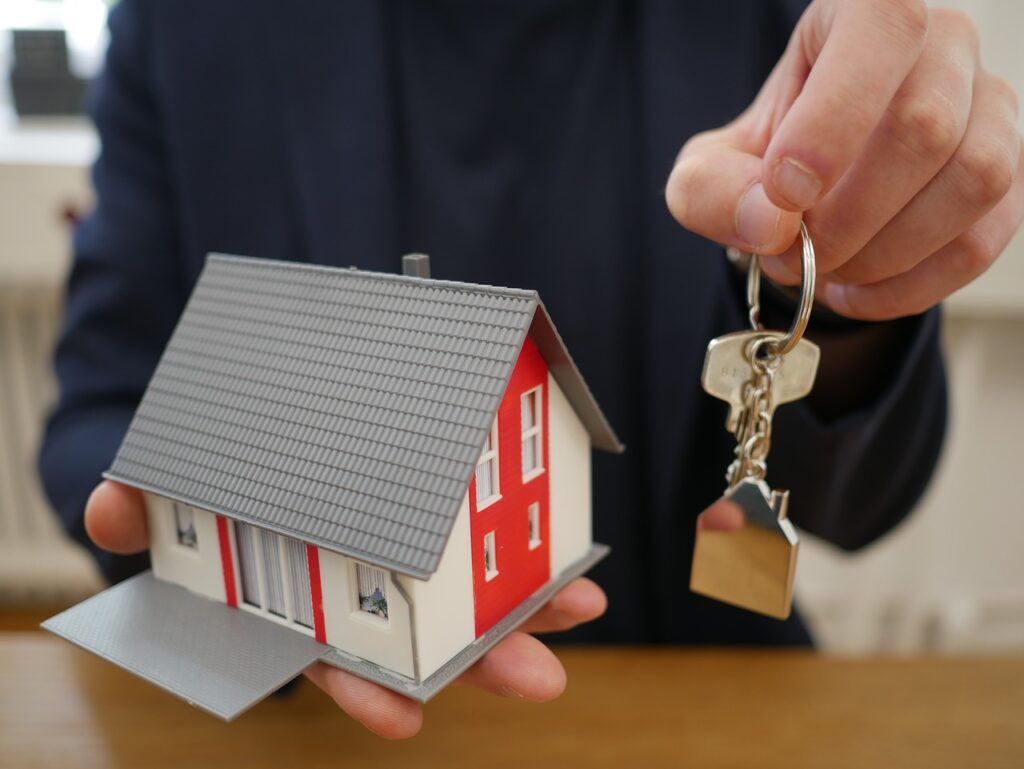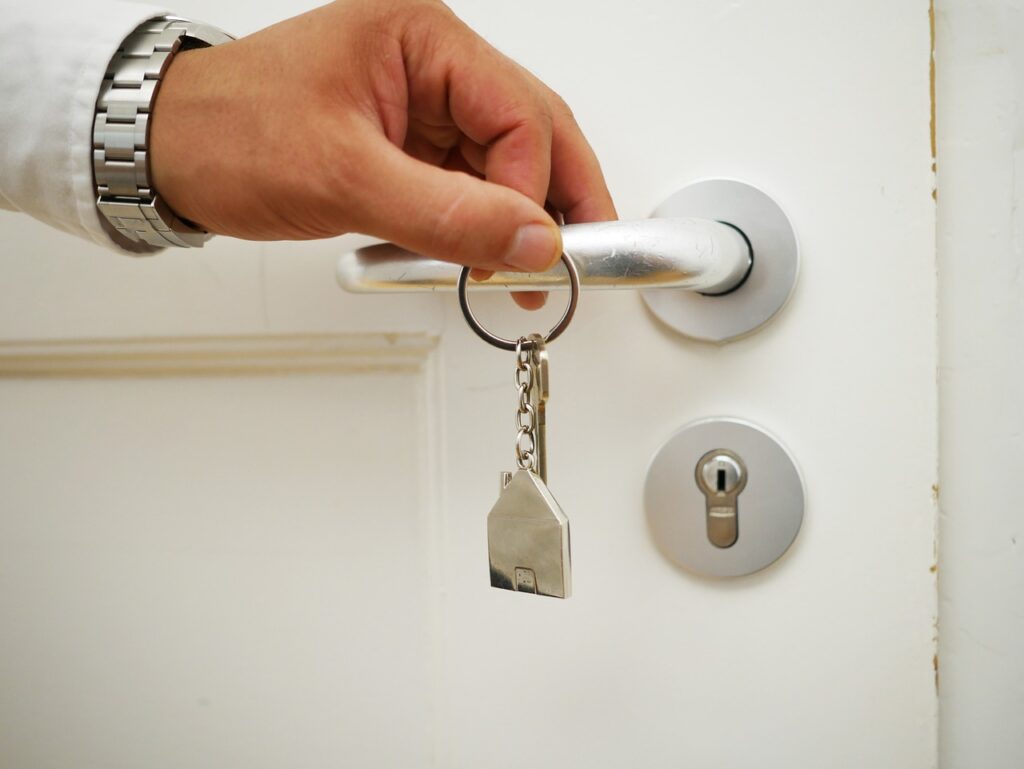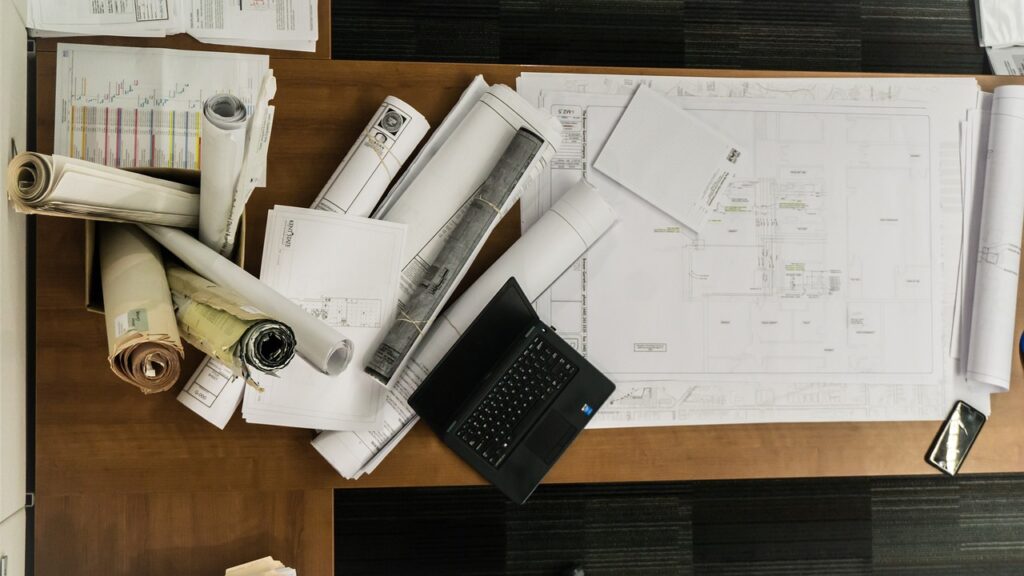Koh Samui, with its tropical allure, pristine beaches, and thriving real estate market, is increasingly attracting both investors and those seeking a luxurious lifestyle. Investing in property on this idyllic island presents unique opportunities, but understanding the true value of a property is essential to making the right financial decision. Whether you’re buying a vacation home for your personal enjoyment or seeking a long-term investment, knowing how to accurately assess real estate value will help ensure your investment appreciates over time.

The process of evaluating real estate in Koh Samui is multi-dimensional, involving key factors such as location, proximity to the beach, the condition of the property, and prevailing market trends. Each of these elements can significantly influence the property’s value, whether you’re looking at a beachfront villa or a hillside retreat. By gaining a deeper understanding of these factors, you can make an informed choice, ensuring that your property investment not only meets your lifestyle needs but also holds or increases its value.
In this article, we’ll guide you through the critical factors that impact the value of real estate in Koh Samui, helping you navigate the market and make the best decision for your future investment.
Location: The Primary Determinant of Property Value
In real estate, location is the most significant factor that determines a property’s value. In Koh Samui, proximity to the beach, tourist attractions, and essential services plays a pivotal role in driving property demand. Whether you’re looking to purchase a beachfront villa or a tranquil inland retreat, location will heavily influence the property’s desirability and price.
Proximity to Beaches and Coastal Views
Properties close to Koh Samui’s famous beaches, such as Chaweng, Lamai, or Bophut, are highly sought after, making them prime real estate locations. Their ocean views and easy access to the sea elevate their market value, particularly for those looking for luxury living or investment opportunities in vacation rentals. Coastal and beachfront properties in these areas are not only limited in availability but also in high demand, especially from expats and tourists seeking an idyllic tropical lifestyle. This scarcity often results in premium prices, making beachfront real estate one of the most expensive property types on the island.
However, for buyers looking to enjoy the tropical lifestyle without the hefty price tag of beachfront living, properties further inland can provide better value. Inland villas with hilltop views of the ocean offer a balance between luxury and affordability. These properties still provide stunning vistas while being more attractively priced compared to those directly on the coast. For savvy investors, this means capitalizing on lower costs while still enjoying the perks of island living.
Infrastructure and Accessibility
Apart from the beach, a property’s proximity to infrastructure and essential services plays a vital role in its valuation. Well-developed areas with reliable road access, utilities like electricity and water, and closeness to schools, hospitals, and shopping centers tend to hold higher value. Properties located near paved roads are more convenient and accessible, which not only increases their value but also makes them more appealing to potential buyers and renters alike.
Additionally, access to airports and ports can significantly enhance a property’s attractiveness. For vacation homes or investment properties, proximity to Samui International Airport or Nathon Pier can make traveling in and out of the island easier for both owners and visitors. Such accessibility boosts rental demand, particularly from tourists who prioritize convenience. Properties with strong infrastructure connections and close proximity to these key points typically enjoy higher demand, leading to more robust rental yields and long-term appreciation in value.
In conclusion, when assessing property in Koh Samui, the importance of location cannot be overstated. Whether it’s the stunning views, proximity to the beach, or convenience offered by local infrastructure, location directly impacts both the value and investment potential of a property.
Land Size and Plot Characteristics
The size of the land is a key determinant of property value in Koh Samui, especially given the limited availability of prime land near the coastline. Larger plots tend to command premium prices, particularly in areas close to beaches or with ocean views. Whether you’re investing in a luxury villa or planning a development project, the total land area directly influences not only the market value but also the future potential of the property.
In Koh Samui’s competitive real estate market, larger plots are especially sought after because they provide more flexibility for expansion or development. Buyers often seek spacious lots to either build larger properties, add features like gardens or pools, or subdivide for potential future developments. Additionally, larger parcels of land offer more privacy and seclusion, which is a desirable feature for high-end villas aimed at tourists or expatriates seeking quiet retreats.
For investors, the size of the land also affects the potential for rental income. Properties on larger plots can typically be marketed as luxury retreats, commanding higher rental fees, particularly in the high-demand tourist seasons.

Land Title Deeds and Legal Considerations
In Thailand, the type of land title deed significantly affects the value and security of a property investment. The most secure and highly regarded deed is the Chanote title, which grants full ownership and is clearly demarcated by official land surveys. A Chanote title is registered with the land office, offering clear boundaries and ownership rights. Properties with a Chanote deed are more valuable because buyers have confidence in their legal ownership rights and the secure transfer of property.
Other types of land deeds, such as Nor Sor 3 or Nor Sor 3 Gor, are less definitive. These titles may offer fewer rights, and some are not yet fully surveyed or registered with the land department. While these properties can still be purchased, they generally hold less value due to the legal uncertainties or restrictions involved. Properties with these deeds may be harder to sell or develop, and the land value is often lower as a result.
For foreign buyers, understanding local regulations is crucial because foreigners cannot directly own land in Thailand. However, options such as long-term leases or purchasing through a Thai-registered company offer legal alternatives. In cases where land is leased, the duration and terms of the lease will impact the property’s marketability and long-term value. It is essential to work with a legal advisor who can verify the title deed and guide you through the complexities of property ownership laws in Thailand. This not only ensures that the land ownership structure is secure but also protects your investment in the long term.
Ultimately, whether purchasing beachfront land or a property inland, understanding the type of title deed and the implications of Thai land ownership laws is critical in determining the property’s overall value and investment potential.
Property Condition and Design
The condition of the property and its design are critical factors influencing its overall valuation. While some buyers may be open to investing in renovations to personalize their homes, others prefer move-in-ready properties that require minimal work. This distinction is essential in the competitive real estate market, particularly in desirable locations like Koh Samui, where the demand for both types of properties can vary significantly. Understanding buyer preferences regarding property conditions can guide sellers in positioning their homes effectively.
Age and Maintenance of the Property
The age of a property plays a pivotal role in determining its market value. Generally, well-maintained properties featuring recent renovations or modern construction retain higher value compared to their older counterparts. However, older properties often suffer from issues related to wear and tear, which can necessitate significant investment in repairs, ultimately reducing the asking price. For villas in Koh Samui, ensuring structural integrity is crucial, especially in areas prone to high humidity. Proper maintenance practices, including regular inspections and timely repairs, can help preserve property value and appeal to potential buyers.
Architectural Style and Appeal
In Koh Samui, the architectural style and overall appeal of a property significantly impact its value. Modern villas designed with tropical-inspired aesthetics—featuring elements such as open floor plans, large windows, and outdoor living areas—are particularly attractive to both buyers and renters. These design choices not only enhance the aesthetic appeal but also promote a lifestyle that aligns with the tropical climate of the region. Additionally, properties that incorporate eco-friendly features or embrace sustainable design practices are increasingly sought after. As more buyers and investors prioritize environmentally conscious developments, properties that meet these criteria may command higher prices in the competitive market.
Rental Yield and Investment Potential
For many investors, especially those purchasing a property in Koh Samui as a holiday home or an investment, rental yield is a key consideration in assessing value. Properties that offer good potential for generating rental income tend to hold higher market value, especially in popular tourist areas. Understanding the dynamics of the rental market is crucial for making informed investment decisions, as it directly impacts both cash flow and the long-term appreciation of the property.
Short-Term vs. Long-Term Rental Markets
The type of rental market in which a property is located significantly affects its value. In areas with a strong tourist presence, short-term vacation rentals can be particularly lucrative, especially during peak holiday seasons. Villas that are located close to the beach or offer stunning views are especially desirable for short-term renters, often resulting in higher returns on investment. These properties cater to vacationers seeking unique experiences, making them highly sought after during the bustling tourist months.
Conversely, properties situated in quieter, more residential areas may attract long-term tenants, providing a more stable, albeit potentially lower, rental return. Understanding the rental demand in the area is essential for investors to gauge a property’s income potential. By analyzing local trends and the preferences of both short-term and long-term renters, investors can make strategic decisions that maximize their returns while aligning with their investment goals.
Market Trends and Development Plans
When evaluating a property’s investment potential in Koh Samui, it’s important to consider current real estate market trends and future development plans. Areas with upcoming infrastructure projects—such as new roads, resorts, or amenities—are likely to see property values appreciate over time. Such developments not only enhance the desirability of the location but also improve accessibility, attracting both tourists and potential residents.
Conversely, areas where development is stagnating or where environmental restrictions may limit growth could experience a plateau in property values. Investors should keep a close watch on market forecasts and local development plans to determine whether a property’s value is likely to appreciate in the coming years. Being proactive in understanding these factors will enable investors to make more informed decisions, ultimately enhancing their investment strategy and maximizing their returns in Koh Samui’s dynamic real estate market.

Comparative Market Analysis (CMA)
A Comparative Market Analysis (CMA) is one of the most effective methods for assessing the value of a property in Koh Samui. This analysis involves examining the prices of recently sold properties in the same area that are similar in size, condition, and features. Conducting a CMA provides valuable insights that can guide buyers and sellers in making informed decisions about pricing and investment strategies.
Conducting a CMA
To conduct a thorough CMA, it’s essential to collaborate with a local real estate agent or property consultant who possesses in-depth knowledge of the Koh Samui market. These professionals can provide access to the latest market data and trends, helping you compare your potential investment with similar properties. By analyzing factors such as location, condition, and features, you’ll gain a clearer understanding of whether the asking price is fair and accurately reflects the property’s true value. This step is crucial for both buyers seeking a good deal and sellers looking to price their property competitively in the market.
Evaluating Comparable Sales
When evaluating comparable sales, focus on properties that have sold within the past six to twelve months, as real estate markets can fluctuate rapidly. Look for homes with similar square footage, location, and amenities, ensuring you consider properties that closely align with your target investment. It’s also important to take into account any differences that may affect value, such as unique views, upgraded features, or specific architectural styles. These factors can significantly influence the perceived value of a property and should be carefully assessed to provide a more accurate CMA.
By utilizing a CMA, buyers and sellers can make well-informed decisions based on current market conditions, ultimately leading to better investment outcomes in Koh Samui’s competitive real estate landscape.
Connecting Heveatecture to Your Property Investment Journey
At Heveatecture, we understand that navigating the real estate market in Koh Samui can be both exciting and challenging. Our commitment is to provide you with comprehensive support and expertise, ensuring that your property investment journey is as seamless as possible.
Expertise in Property Valuation
Our team is well-versed in the factors that influence property value, including location, property condition, and rental potential. By leveraging our local knowledge and experience, we assist clients in conducting thorough Comparative Market Analyses (CMA) to ensure they make informed decisions. This analytical approach allows us to provide clients with insights into whether the asking price of a property is reflective of its true value.
Customized Investment Strategies
Recognizing that each investor has unique goals, Heveatecture tailors its services to meet your specific needs. Whether you are interested in short-term vacation rentals or seeking long-term rental opportunities, our team will guide you in assessing the local rental market. By analyzing the demand and rental yield potential, we help you identify properties that align with your investment strategy.
Focus on Architectural Appeal
In addition to location and rental potential, we place a strong emphasis on the architectural style of properties. Our design philosophy embraces modern and tropical-inspired aesthetics, ensuring that the villas we promote resonate with both buyers and renters. By prioritizing properties with appealing designs, we enhance their market value and desirability.
Supporting Sustainable Investments
At Heveatecture, we also recognize the growing trend towards eco-friendly features and sustainable design. We actively seek properties that incorporate these elements, understanding that many investors today are looking for environmentally conscious developments. This focus not only meets the demands of today’s buyers but also positions your investment for long-term success in a rapidly evolving market.

Conclusion
Assessing the value of a property in Koh Samui requires a careful evaluation of numerous factors, including location, land size, property condition, and market trends. By understanding the importance of proximity to the beach, having proper legal title deeds, and recognizing the property’s design appeal and rental potential, you can make an informed decision about your investment.
A comprehensive evaluation should not only consider the immediate attributes of the property but also the surrounding amenities and the overall real estate market dynamics in Koh Samui. Conducting a Comparative Market Analysis (CMA) will provide valuable insights into current property values and help you identify whether the asking price aligns with market expectations.
Additionally, paying attention to future market trends and development plans in the region will further enhance your decision-making process. Areas with upcoming infrastructure projects or an increasing tourist presence are likely to see property values rise, making them prime investment opportunities.
Ultimately, being well-informed and taking a strategic approach to property assessment will ensure that the property you choose is a sound investment—one that offers both personal enjoyment and the potential for financial returns in the vibrant Koh Samui real estate market.
10 FAQs on Assessing the Value of Property in Koh Samui
The primary factors influencing property value in Koh Samui include location, land size, property condition, and rental potential. Properties situated in desirable neighborhoods or near popular attractions tend to have higher values. Additionally, larger land sizes typically increase overall value, while well-maintained properties with favorable architectural styles attract more buyers and renters, enhancing their market appeal.
Properties that are closer to the beach or offer stunning ocean views generally hold higher value due to their desirability. The allure of beachside living attracts both investors and vacationers, making these properties more sought after. This demand often translates to higher rental income potential, contributing further to their overall market value.
The Chanote title is the most secure type of land title available in Thailand and offers full ownership rights. This title is crucial for buyers in Koh Samui, as it ensures legal protection and allows for the most extensive use of the property, making it a preferred choice among investors looking for security in their investment.
Foreigners cannot own land directly in Koh Samui but have alternative options. They can lease land for extended periods or purchase property through a Thai-registered company. This allows foreigners to invest in the Koh Samui real estate market while adhering to local laws and regulations.
To determine if a property is fairly priced, conducting a Comparative Market Analysis (CMA) is essential. This involves comparing similar properties that have recently sold in the area, taking into account factors such as size, condition, and location. A CMA will provide valuable insights into market trends and help assess whether the asking price is reasonable based on current market conditions.
Good infrastructure significantly enhances property value and desirability. Features such as paved roads, reliable access to utilities, and proximity to essential amenities increase a property’s attractiveness to buyers and renters alike. In Koh Samui, areas with well-developed infrastructure tend to see higher property values, making them more appealing investment opportunities.
Yes, the architectural style of a villa plays a crucial role in its market value. Modern and tropical-inspired designs are particularly favored, as they appeal to both buyers and renters seeking a distinctive living experience. Properties that embody contemporary aesthetics and functional layouts are more likely to command higher prices, enhancing their investment potential.
To assess the rental yield of a property in Koh Samui, it is important to analyze the local rental market and compare the potential for short-term vs. long-term rentals in the area. By examining occupancy rates, average rental prices, and seasonal demand, investors can gauge the income potential and make informed decisions regarding their investment strategies.
The condition of a property is a significant determinant of its value. Well-maintained or recently renovated properties typically hold higher value, attracting more buyers and offering better rental potential. Conversely, older homes in need of repairs may be priced lower due to the anticipated costs associated with bringing them up to standard, impacting their market appeal.
Yes, certain areas in Koh Samui are anticipated to experience rising property values. Regions with upcoming infrastructure projects or significant developments are likely to see an increase in demand and appreciation in property values. Investors should monitor local market trends and developments to identify prime investment opportunities that may yield higher returns over time.
